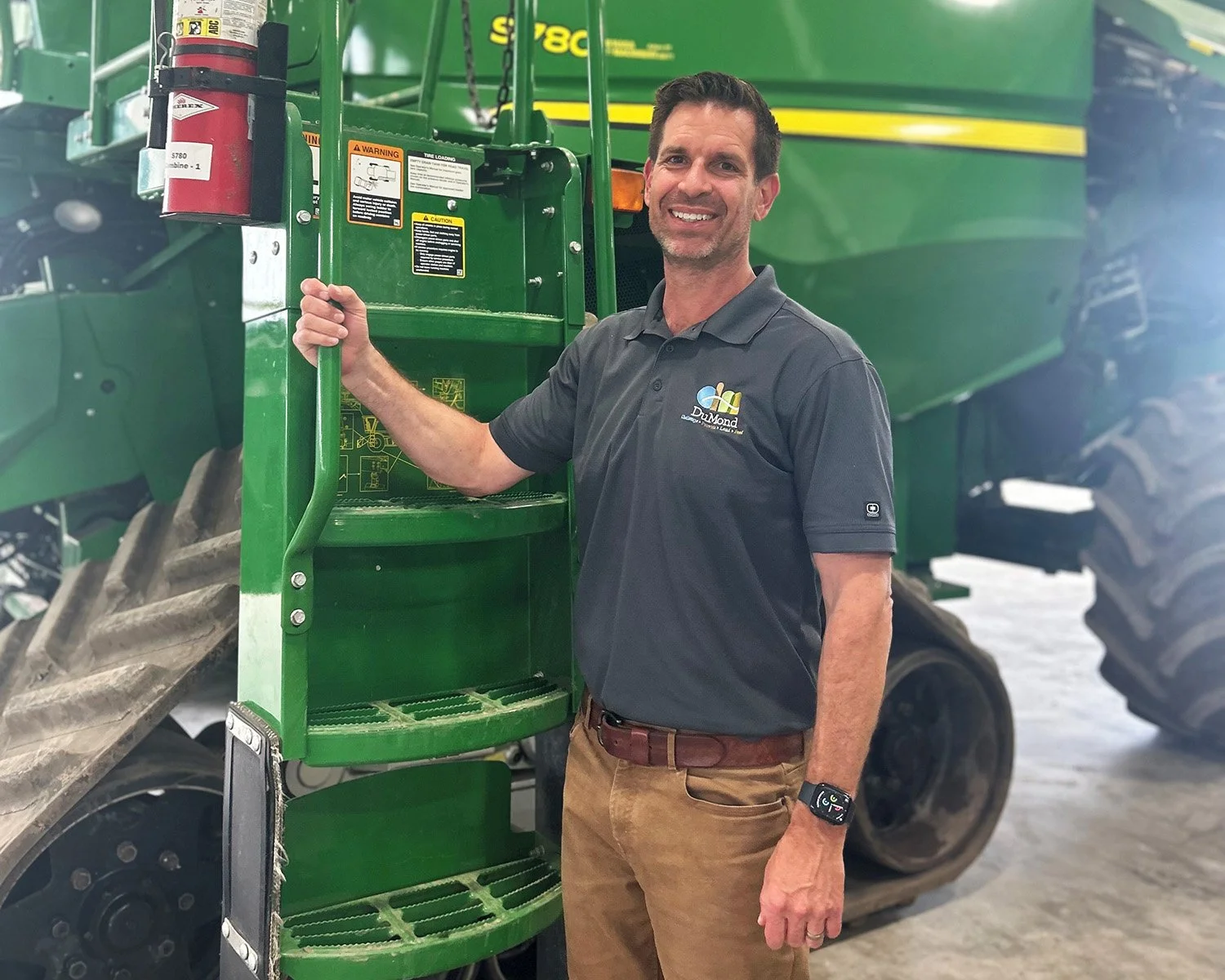By Eric Jenks, Special to NEAFA
This month’s NEAFA member highlight is with Todd DuMond, the CEO/Owner of DuMond Grain, LLC, based out of Central New York. “We’re a family farm,” said DuMond. “I grew up on the farm. We started as a hobby farm with beef cows in 1980, in Saranac Lake. Five years later, my parents moved their dentistry practice to Central NY and we transitioned to crop farming in Fleming, NY, just outside of Auburn. A couple years post college, I decided that Agriculture was my calling, and started our processing division (currently known as Du Mond Grain, LLC) with a small consistent soybean roaster processing beans for a neighboring Dairy farm in 2003.
Before returning to his family’s farm, DuMond received his Masters in Mechanical Engineering from MIT in Boston. Following school I spent a couple years working as a design engineer in Houston, TX,” said DuMond. “The work and the pay were great, but in my heart, I missed farming. I love the diversity of things that you get to do on a daily basis with farming. Getting to be outside and growing crops is very rewarding for me. When I formally returned to the farm, we were operating 600 acres. We currently operate just over 6,000 acres of corn, soybeans and wheat. The farm employs 45 people for processing and production, and we have an additional 30 people who work in our associated trucking team. We have roasted soybeans since 2003, and we added cornmeal in 2014, non-gmo cornmeal in 2017, and in 2020, we added extruding and extracting soybeans for soybean meal and oil. In 2022, we started processing high-oleic soybeans as well, which can be made into meal, roasted beans, as well as oil. Our latest addition is a biodiesel plant that came online in 2024.”
DuMond sees plenty of potential growth in New York and beyond. “We make a lot of feed, and we’re currently processing twenty percent of all soybeans grown in New York State right now,” said DuMond. “Our facilities have the potential to process three quarters of the soybeans grown in New York however. When we started, dairy farms were having to import most of their protein needs from out of the state, meanwhile so the commodity soybean market was very poor and limited. It’s a great protein source for the dairy market. Creating a local business that could add value for both the grower and the dairy market was a logical progression of my family’s crop farm. I pride myself on strengthening the agricultural community, and have had the opportunity to represent NYS farmers on a number of state and national boards over the years. I understand the value and how essential it is to have a group that can advocate for farmers, agribusinesses, and the work that they do. NEAFA is a great group, and their mission makes sense to support as they continue the growth and advocacy of our industry here in the Northeast.”
DuMond’s vision for the future is a highly efficient self-sustainable one. “I think increased efficiency, sustainability and stability in the markets will lead to long term success for our industry and the American food supply,” said DuMond. “We’re very efficient with the movement, processing, and distribution of our feeds and we get good production out of the feed. We are a local connection here in Central New York that adds value to the crops grown here by producing a cost effective and consistent feed. There have always been issues in feed transportation at large when you need to bring in something from a distance. Being a local supplier, we don’t miss a delivery to our clients. We’re moving forward in a climate smart culture, and we need to be smart and sustainable with every aspect of our food production. We have and hope to continue to run our entire fleet of trucks and tractors on biodiesel produced from the oil that we produce from our soybeans. It’s a hyper efficient closed loop system when you can fuel the trucks and tractors that produce food with biodiesel that you’ve produced off your own farm. Having a closed loop and locally focused system is an idea that we are looking forward to continuing and growing in the future.
For more information on DuMond Farms and what they do, please visit www.dumondfarms.com

